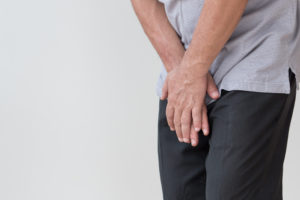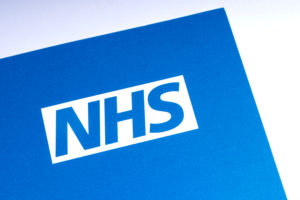A Wee Problem
A “wee” problem?
 For men, having problems weeing is very common as you get older. Some men may find it embarrassing or difficult to talk about urine problems, but it's important to remember you're not alone.
For men, having problems weeing is very common as you get older. Some men may find it embarrassing or difficult to talk about urine problems, but it's important to remember you're not alone.
The bowel and bladder research done for the Trust showed that at least 20% of you were suffering from bladder problems, including continence problems - where you can’t control the passage of urine.
Having urinary symptoms can make it harder to cope with your disability and can cause practical challenges if you need to get dressed or undressed in a hurry or find a toilet quickly.
It may stop you from doing the things you enjoy such as hobbies or seeing friends and can cause embarrassment and anxiety about going out. Having urinary problems or problems getting an erection can even impact your relationships and cause low mood or depression.
Thankfully there is much that can be done for someone who is having these problems but it’s important to get the right advice and treatment from your doctor.
Key Points
- Having problems weeing are a common problem as we age
- They can make living with disability harder and impact your quality of life
- Common symptoms include peeing more frequently, going in the night, problems with the flow and problems controlling the passage of urine (incontinence)
- The prostate gland gets bigger with age and can cause many of these problems
- An overactive bladder can also be one of the causes
- Pain and passing blood in the urine always need investigating
- Problems with getting an erection can usually be treated
- Speak to your GP about your urinary symptoms-don’t be embarrassed asking for help
- Your GP will be able to give you the right advice, tests and treatment, depending on the cause
- They may refer you on to the specialist called a Urologist.
- You can always speak to one of the Medical Advisers at the Trust for advice and information
So what symptoms might you be experiencing and what does this mean?
Weeing frequently?
If you find you are needing to go to the toilet a lot to pass urine - this is typically more than 8 times over 24 hours, is what nurses and doctors call urinary frequency.
The urge to wee frequently – and often suddenly – through the day can be a sign of something called an overactive bladder. Overactive bladder (OAB) syndrome means that the bladder, which is a bag made of muscle, can squeeze suddenly and when the bladder is not full. This can be related to both age and certain medications.
Needing to go to the toilet a lot can also be a symptom of a prostate problem. The prostate, which is a gland normally about the size of a walnut, lies between the bladder and the urethra (the tube that empties urine from your bladder). As men age, the prostate naturally gets bigger. This is called benign prostatic hyperplasia (BPH). This causes problems by applying pressure to the urethra (wee tube) and causing problems emptying your bladder or making the bladder more irritable, meaning you need to go more frequently.
Weeing frequently may also be a sign of diabetes, especially if it’s coupled with feeling thirsty and being more tired than usual.
There are other causes of frequent peeing, so it always important to tell your doctor about your symptoms.
Getting up in the night to go? Slow or weak flow?
If you find that your urge to pass urine is waking you up in the night and you are perhaps going two or more times, this is what we call nocturia. It’s not a normal part of getting older although many people assume that it is.
The commonest cause is having an enlarged prostate and it can lead you to have a very disrupted night’s sleep. If you have to get up suddenly in the dark this can increase the risk of falls.
You may also find it takes you a long time to go for a wee and the passage of urine may be slow or weak or you may find you get some dribbling after you finish.
Again, this problem is often due to a prostate problem. As it enlarges it can squeeze the urethra, the tube that drains urine, causing issues with the flow and leading to poor emptying of the urine.
Leaking urine?
This is where you leak urine and the passage of wee isn’t always under your control. It’s not a normal part of ageing and shouldn’t be thought of like that. You may even be unaware that you have passed urine until it is too late.
The main causes of incontinence in men often relates to the prostate. For example, incontinence can result from a big prostate (BPH), prostate cancer, or a result of prostate surgery. This is because it causes damage to the sphincter, which is the circular muscle controlling the flow of urine out of the bladder. If this cannot squeeze tightly and close off the tube which drains urine, it means that urine can leak out.
Other causes include an overactive bladder or having a water infection. Much rarer causes include those conditions affecting the brain and spinal cord.
Are you having problems getting an erection?
Some men may find it can be difficult to get or keep an erection. Health care professionals call this erectile dysfunction (ED). This can have lots of causes and can be an early sign of heart disease. Drinking too much alcohol and being stressed can often contribute to the problem.
Sometime problems with getting an erection can be due to having a low level of your male hormone (testosterone).
The good news is that most cases of ED can be treated. The common treatment is to take a tablet before you plan to have sex.
Are you experiencing pain?
Are you experiencing pain in the lower stomach, sides of the stomach or lower back or penis? Experiencing pain is never normal and always needs investigating
Pain in the bladder or penis when passing urine can indicate a few conditions including infection, bladder or kidney stones or inflammation.
Passing blood or have you noticed your urine is pink or red?
Passing blood when passing urine can indicate a few conditions including infection, bladder or kidney stones, inflammation or even cancer. If you ever experience this you should speak to your GP immediately. It may not have a serious cause but should always be checked out.
When should I see my GP?
 If you are experiencing any of the above symptoms, you should always see your GP. Your GP will have seen these problems many times before so you shouldn’t feel embarrassed or silly for asking for help. Having problems with urinating shouldn’t be accepted as a normal part of getting old and there are any many options for treatment (depending on what the cause is). More serious conditions like infection and cancers also need to be ruled out.
If you are experiencing any of the above symptoms, you should always see your GP. Your GP will have seen these problems many times before so you shouldn’t feel embarrassed or silly for asking for help. Having problems with urinating shouldn’t be accepted as a normal part of getting old and there are any many options for treatment (depending on what the cause is). More serious conditions like infection and cancers also need to be ruled out.
What will my GP do?
They will ask you some questions about your health and symptoms and may discuss your medications. There may also be some tests, such as urine test which can check for blood or sugar. They may want to carry out some blood tests looking for conditions like diabetes and to check how well your kidneys are working. The GP may want to examine your stomach and then your back passage to feel what the prostate is like.
Your GP may give you information and advice about a blood test that measures the level of a protein called prostate specific antigen (or PSA for short). There are several possible explanations for raised PSA levels. One explanation is prostate cancer, but this is not as common as having an enlarged or big prostate. Having the PSA blood test should be done in conjunction with a prostate examination.
The treatment for your urine symptoms will be depending on the cause. If necessary, your GP may refer you to a see a specialist in urinary problems called a Urologist.
Can I talk to anyone at the Trust?
If you’re worried about your symptoms or need more advice, please speak to one of the Medical Advisers at the Trust on 01480 474074, or email us.
You can also speak to one of our trained Men's Health Champions who can provide guidance and support on how to find the rich information or services to improve your health.



